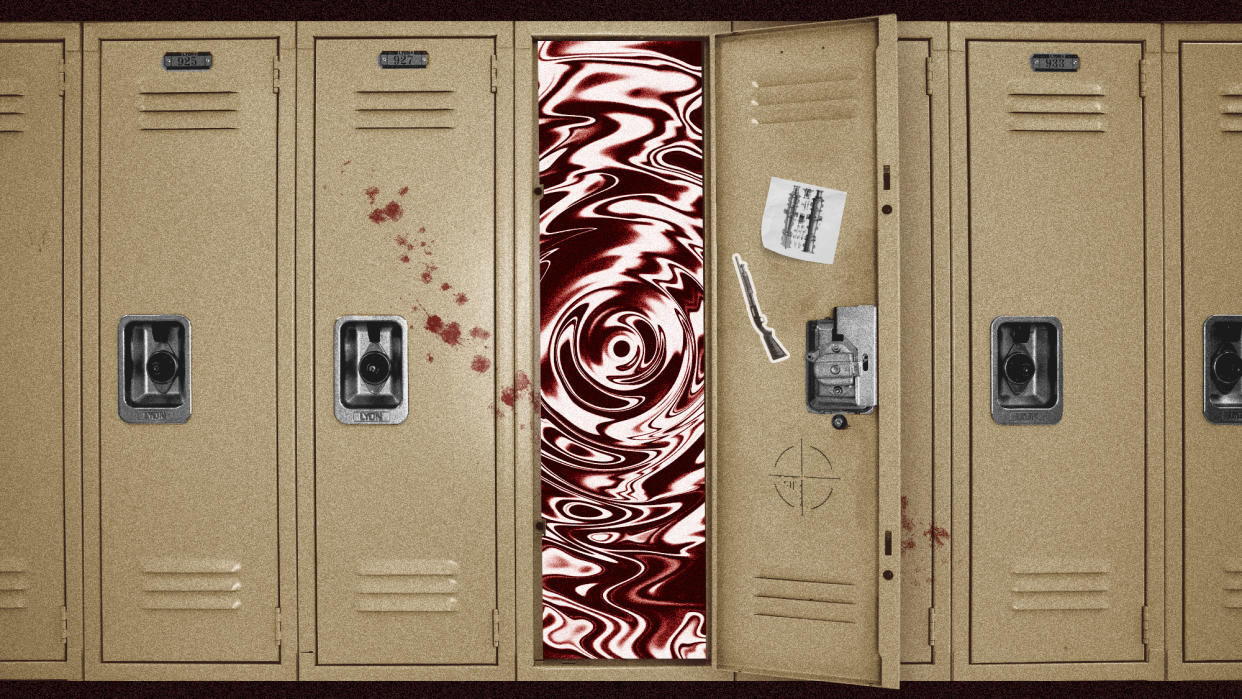Dark online groups idolize the Columbine school shooters

April 20 marked the 25th anniversary of the Columbine High School shooting in Colorado, where a pair of gunmen killed 12 students and a teacher before taking their own lives. The attack remains one of the deadliest school shootings in U.S. history, and while Columbine led to a reckoning over gun culture in America, it also birthed a darker element, one that exists to this day: online fan clubs that idolize the Columbine shooters.
In the months after the shooting, online message boards began creeping up lauding the actions of the perpetrators, Eric Harris and Dylan Klebold. There were a variety of reasons for this. Some idolized the pair as lone wolfs, while others on the far-right lauded their supposed adoration for Adolf Hitler and the Nazis (though many of these alleged motives have since been debunked).
And in the quarter-century since the shooting, this subculture around Columbine has only been increasing, and many copycat fan clubs have also emerged surrounding other school shootings and mass casualty events. But how prevalent are these fan clubs, and why are they still flourishing?
What do these fan clubs believe?
Columbine has created an "obsessive online interest among a generation that wasn't even alive at the time of the attack," said USA Today. Much of this is due to the advent of social media over the last few decades, as well as the internet allowing easier access to information about the shooters.
After Columbine, it was discovered that Harris and Klebold left evidence of their plans, including journals and videos. This resulted in a subculture that "latched onto those details of their online life and the investigative reports that followed," USA Today said, and that subculture has never gone away. Modern social media has given these fan club members a new platform to spread their beliefs, and "TikTok profiles with the shooters' names and photos are festooned with hearts and ribbons and fans of the shooters declare their love and admiration in the comments."
The fact that so much of the shooters' lives were on display following the attack "helped make the Columbine shooters into icons of rebellion," said The Guardian. Teens that didn't believe the narrative that Harris and Klebold were cold-blooded killers "now had lots of highly charged, intimate material to stoke their fascination, and they used it to build a counter-narrative" that depicted the pair as "martyred revolutionaries who dared to rebel against the repressive, jock-centric culture of their school." Social media played an integral role in this evolution. Fans first began uploading tributes of the shooters on YouTube, then moved to Tumblr when YouTube started cracking down, before making their way to modern platforms like X and TikTok.
Not all of these fans are the same, and Columbine followers can generally "be separated into four types," according to experts at the Global Network on Extremism and Technology. This includes researchers who search for and share information, fangirls who have a crush on the perpetrators, fans who empathize with the shooters but do not necessarily condone their actions, and copycats.
What are the consequences of these clubs?
Speaking of copycats, that is exactly what occurs with many of the Columbine fans. There have been "54 mass shootings that have killed nearly 300 people and wounded more than 500," and "every gunman left evidence that they were inspired or influenced by the murderers at Columbine," said The Atlantic. This is largely due to the "legend" that was propagated around the shooters online.
The Virginia Tech shooter "wrote in a school assignment that he wanted to 'repeat Columbine' and that he idolized its 'martyrs,'" said the Atlantic. The Northern Illinois University shooter was "explicitly inspired by both Virginia Tech and Columbine," and the Sandy Hook shooter was inspired by all three. But most fans were "just curious teenagers interested in the criminal mind or in analyzing Columbine," and "many still are."
And like Columbine, these shooters often receive fans of their own. Following the Parkland school shooting in Florida in 2018, online users began fawning over the shooter, Nikolas Cruz, and "created hundreds of blogs, private servers, and chat rooms where kids can get together and talk about their latest obsession," said New York Magazine. Cruz killed 17 people, but according to one fan, he was "just a person that the system failed."

